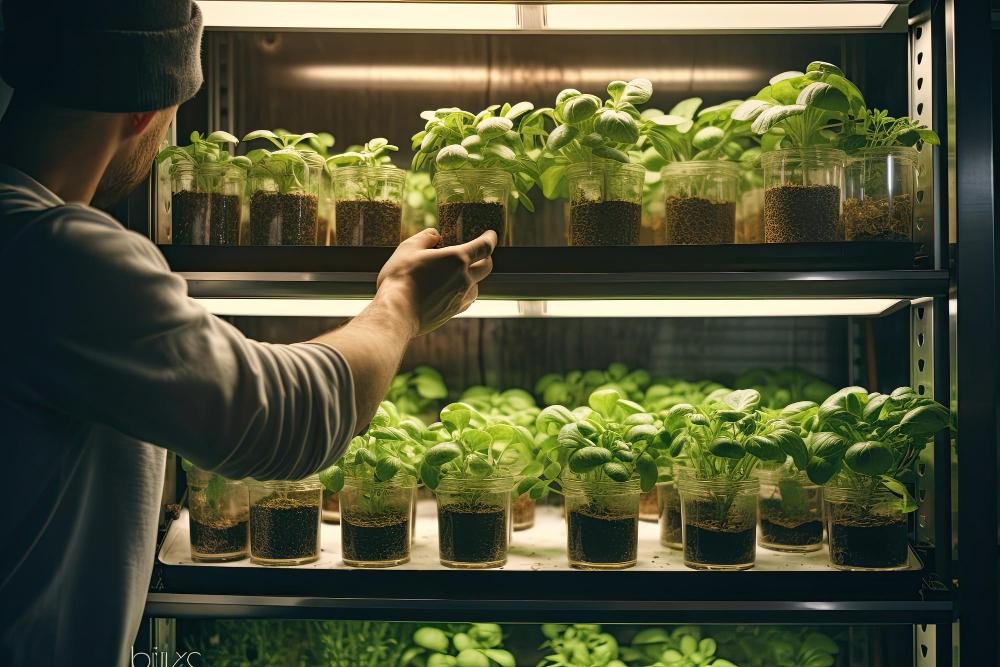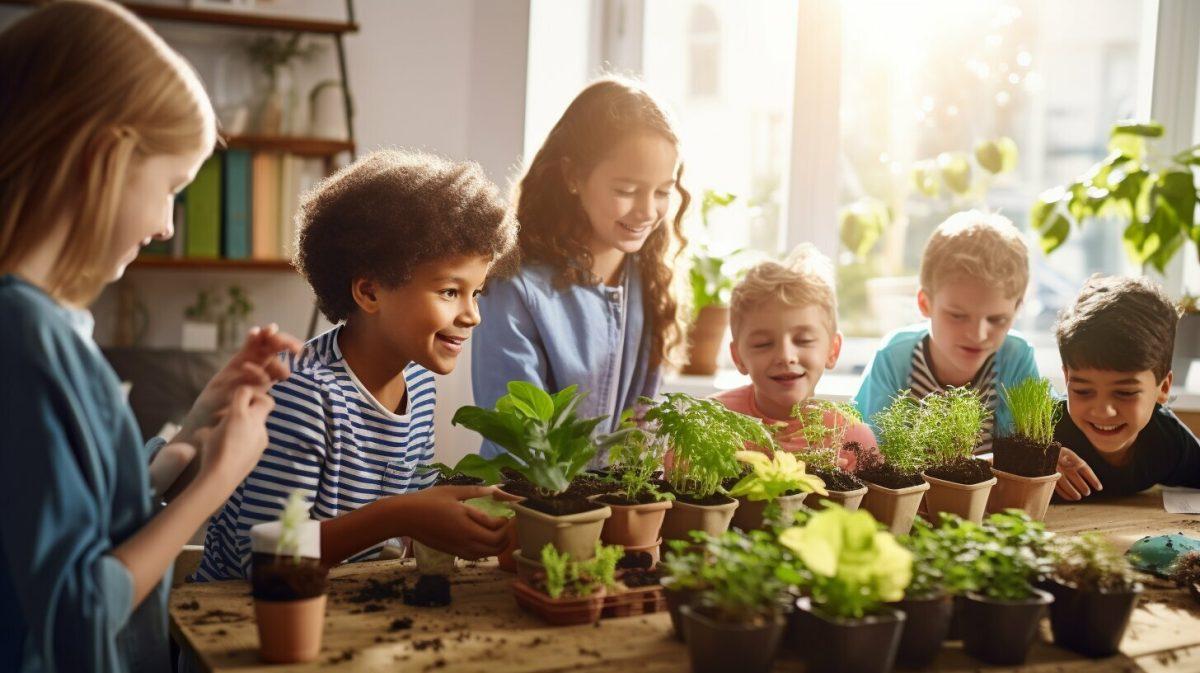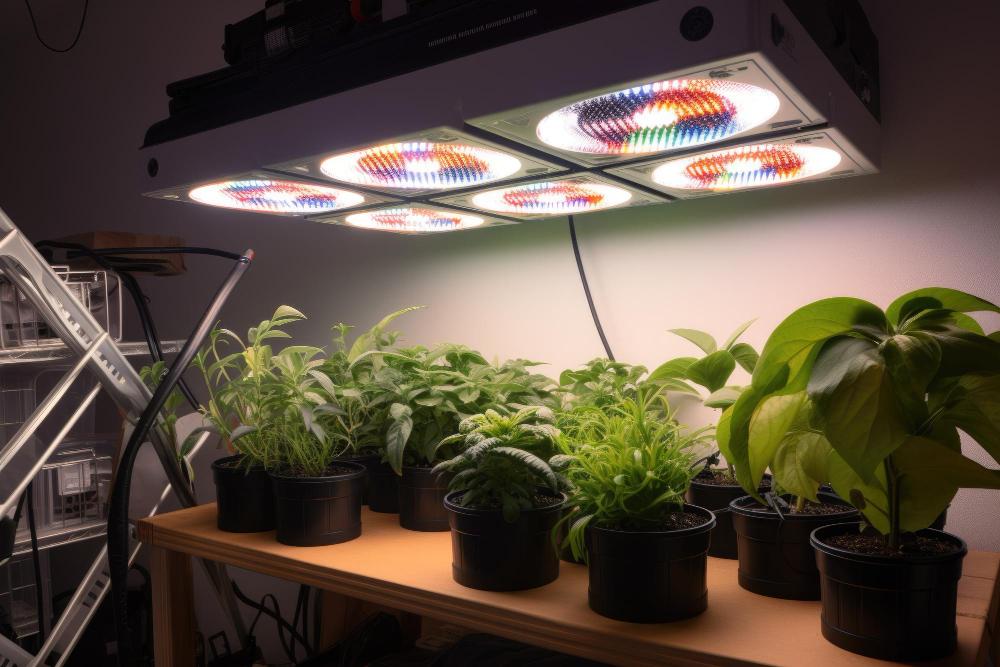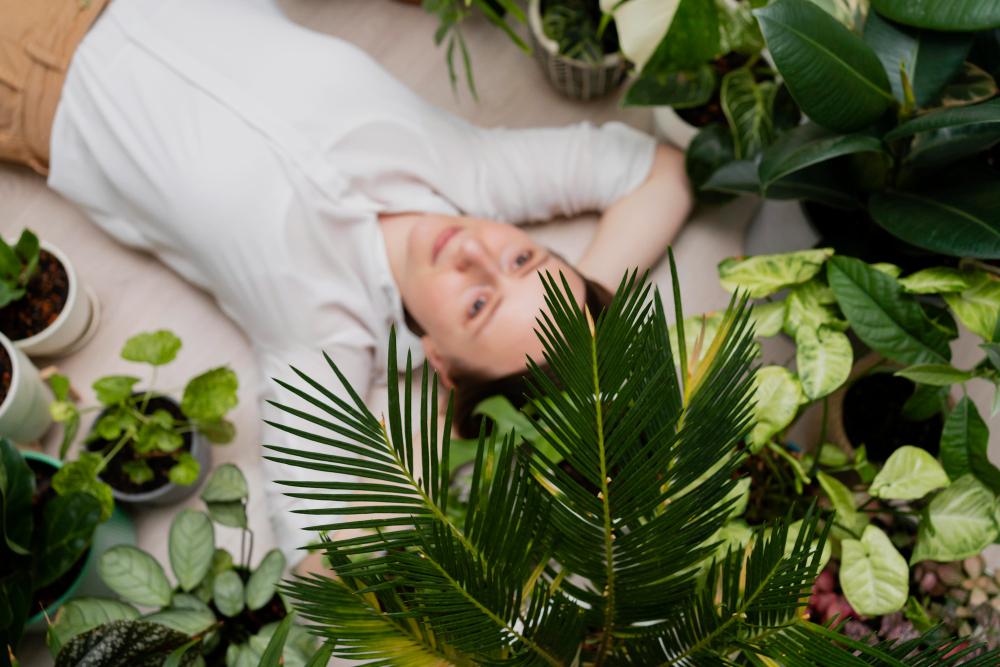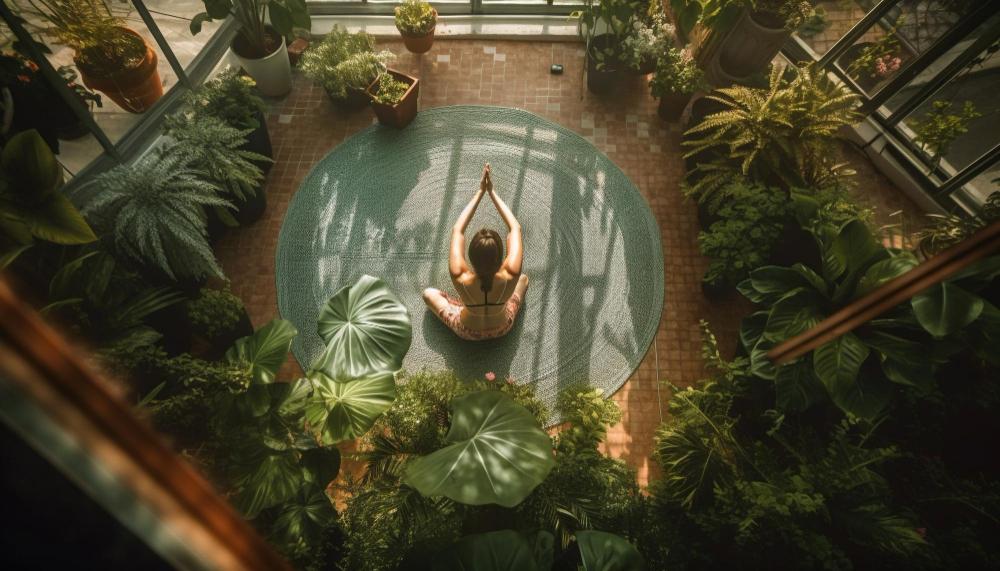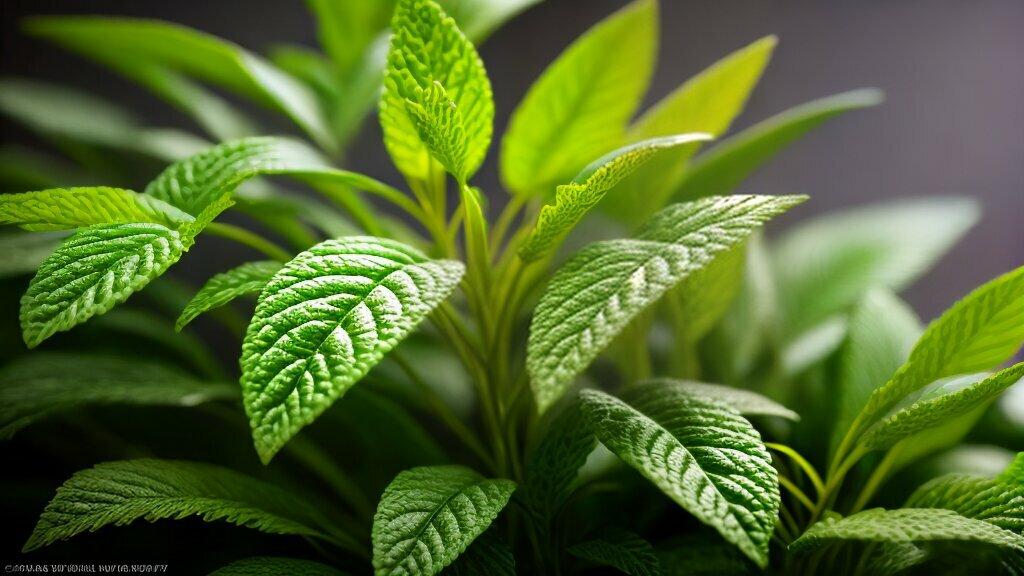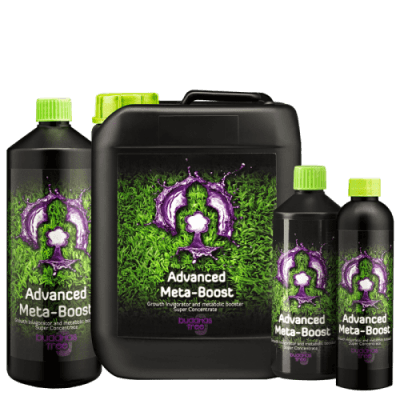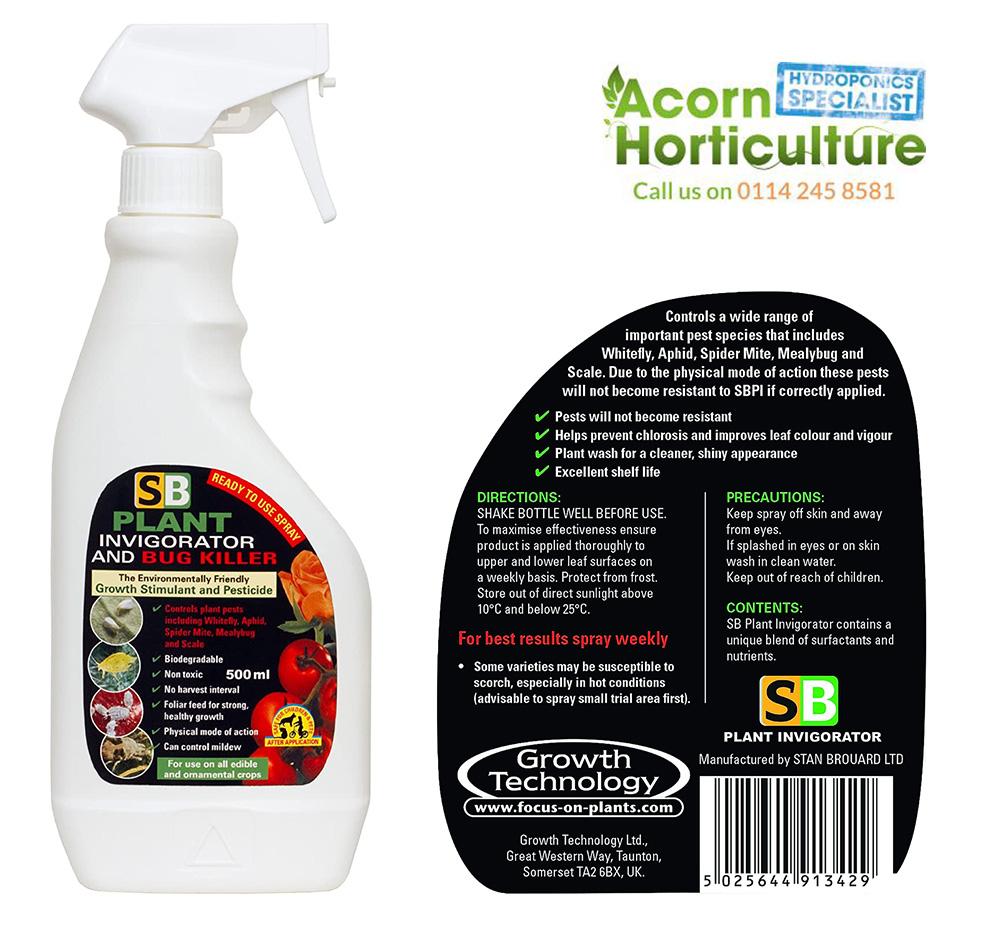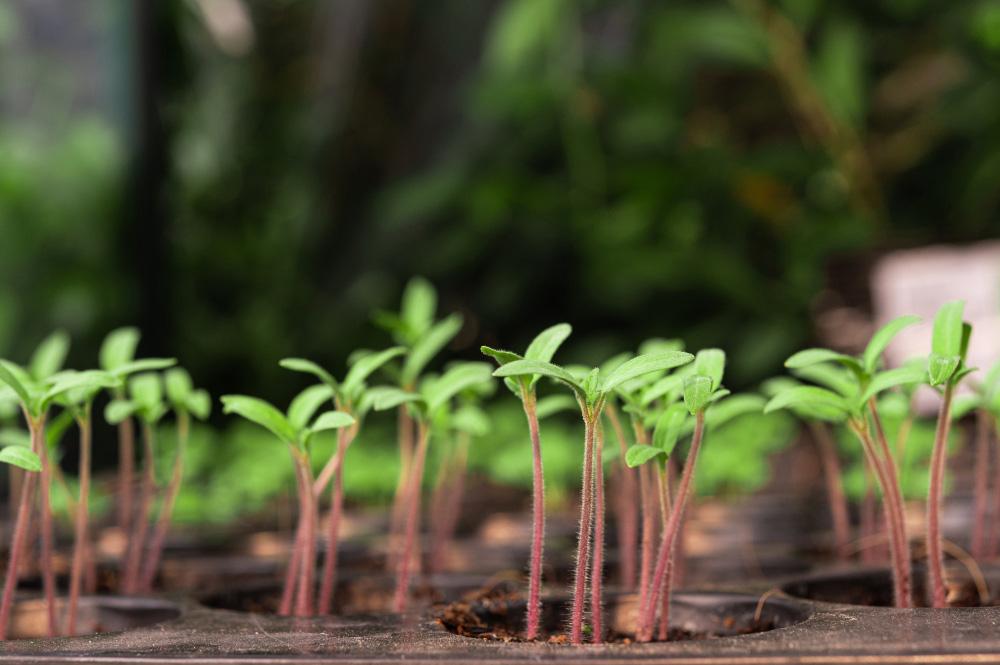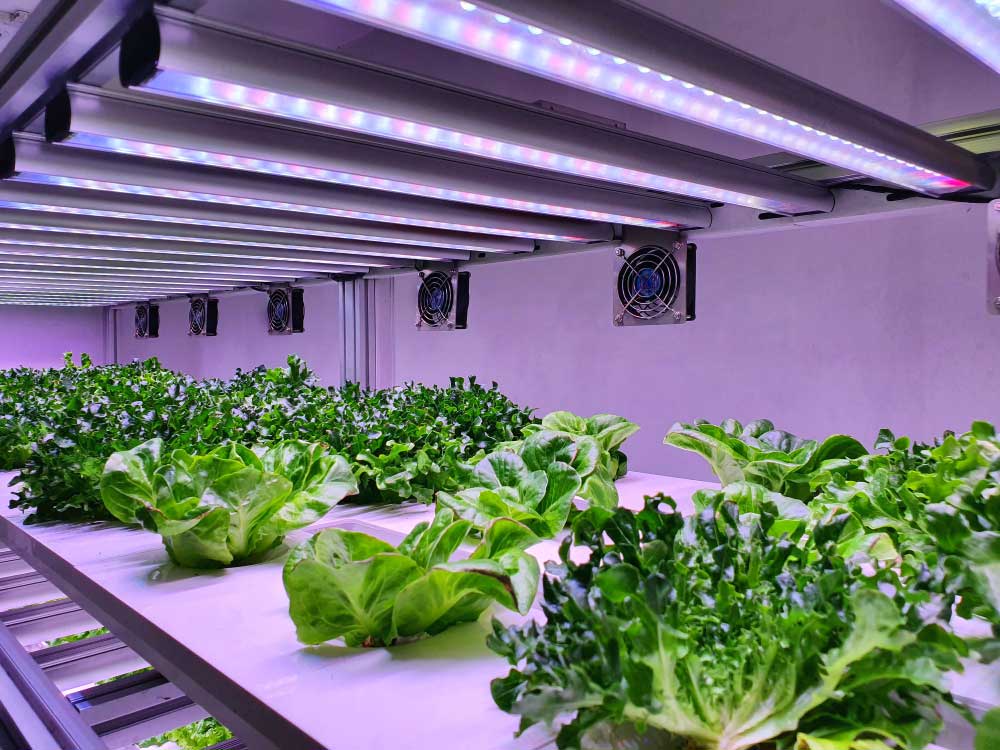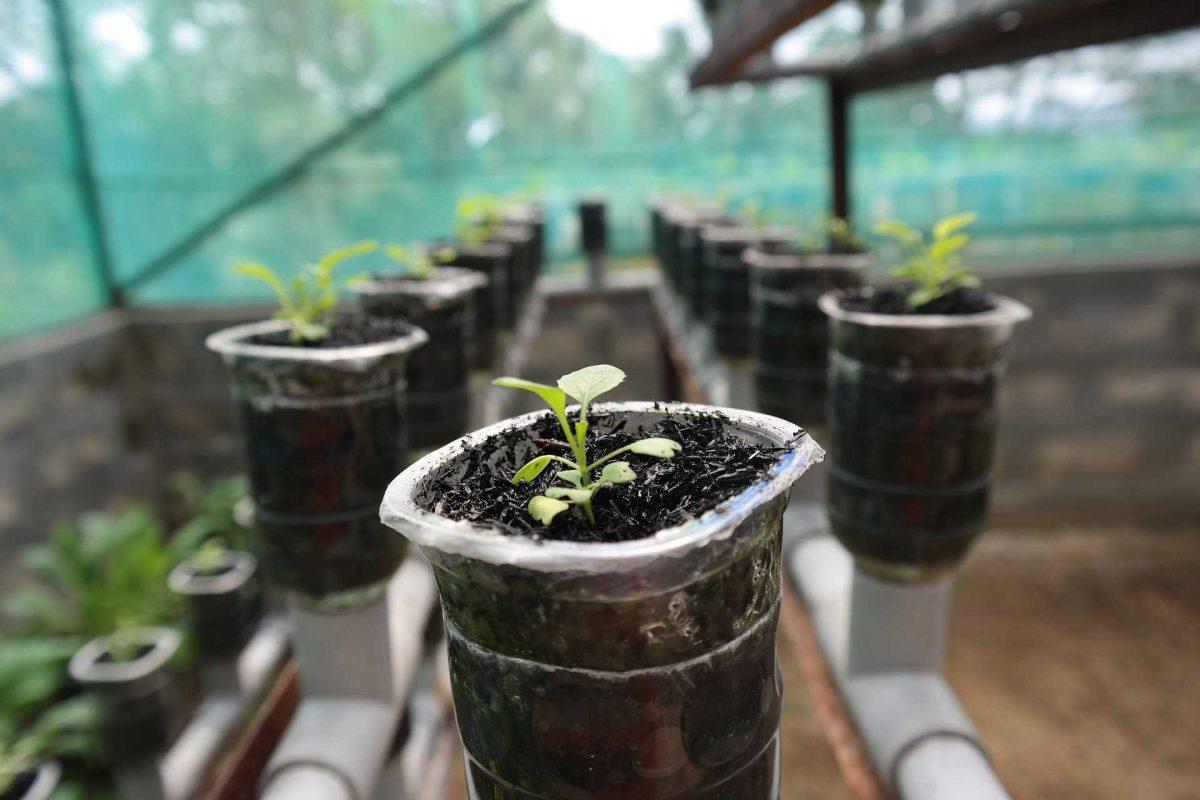Introduction
Have you ever wanted to grow your own food but lack a garden or outdoor space? Or maybe you live in an urban area with limited outdoor green space. We have an exciting solution for you: indoor hydroponics.
Hydroponics is a soil-free growing technique that allows plants to grow in water with added nutrients. It is a highly efficient and sustainable way to grow plants, especially in indoor or limited space environments.
Indoor hydroponics offers numerous benefits for urban gardeners. Not only does it allow for year-round growing, but it also takes up less space and requires less water compared to traditional soil gardening. Plus, with the right setup and care, hydroponic plants can produce more yield than their soil-grown counterparts.
Key Takeaways:
- Indoor hydroponics is a soil-free growing technique
- Hydroponic plants grow in water with added nutrients
- Indoor hydroponics is highly efficient and sustainable for indoor or limited space environments
- Hydroponic plants can produce more yield than their soil-grown counterparts
What is Indoor Hydroponics?
At Acorn Horticulture, we believe that indoor hydroponics is the future of urban gardening. Hydroponic gardening is a soil-free growing technique that allows you to grow plants in a nutrient-rich water solution. Indoor hydroponics simply brings this technique indoors, making it an ideal solution for those who want to garden in small spaces, all year round.
Hydroponic systems are the backbone of indoor hydroponics. They provide the necessary support, irrigation, and nutrient delivery to plants. There are different types of hydroponic systems available, each with its own set of benefits and drawbacks. Some of the most popular indoor hydroponic systems include:
| System Type | Advantages |
|---|---|
| Deep Water Culture | Low maintenance, straightforward setup |
| Drip Irrigation | Flexible design, efficient use of water and nutrients |
| Nutrient Film Technique | Highly efficient use of resources, ideal for small plants |
Regardless of the system type, indoor hydroponics offers several benefits for urban gardeners. It allows for year-round growing, as indoor environments can be controlled and replicated to suit different plant varieties. It also conserves water, as hydroponic systems use up to 90% less water than traditional soil-based methods. And finally, indoor hydroponics saves space, making it possible to grow plants in small apartments, balconies, and terraces.
Setting Up Your Indoor Hydroponic System
Now that we understand the basics of indoor hydroponics let’s discuss how to set up your own hydroponic system. First, you’ll need to choose the type of hydroponic system that is best for your space and plants.
| Hydroponic System Type | Description | Best for |
|---|---|---|
| Deep Water Culture | Plants are suspended in nutrient-rich water with the roots submerged. An air pump provides oxygen to the roots. | Lettuce, herbs, leafy greens |
| Nutrient Film Technique | A thin film of nutrient-rich water constantly flows over the roots of the plants, which are held in a tray. | Leafy greens, small herbs |
| Drip System | A timed pump drips nutrient-rich water onto the base of each plant, which is typically held in a medium such as perlite or coconut coir. | Tomatoes, peppers, cucumbers, strawberries |
| Vertical Hydroponics | Plants are stacked vertically in a tower or wall, with water and nutrients flowing down from the top. The roots are supported by a medium such as foam or clay beads. | Leafy greens, strawberries, herbs |
Once you’ve chosen your system type, you’ll need to gather the necessary materials, including a reservoir, pump, grow tray, and medium. You’ll also need to choose the right lighting for your plants and your space.
Setting up your hydroponic system will require some initial effort, but the benefits of soil-free growing will become apparent as your plants thrive. With the right system and guidance, you’ll be on your way to enjoying fresh, homegrown produce all year round!
Nutrients for Indoor Hydroponics
When it comes to indoor hydroponics, providing your plants with the right nutrients is essential to ensure healthy growth and a bountiful harvest. Unlike traditional soil-based gardening, where the soil provides most of the nutrients, hydroponic plants receive their nutrients directly from the water.
At Acorn Horticulture, we offer a range of hydroponic nutrients that are tailored to the specific needs of different plants. Our nutrient solutions are designed to provide all the essential elements that your plants need to thrive, including nitrogen, potassium, phosphorus, calcium and magnesium.
We recommend testing your water regularly to ensure that the nutrient levels are right for your plants. Over-fertilising can be just as harmful as under-fertilising, so it’s important to get the balance right.
Proper nutrient management is key to successful hydroponic gardening, and we’re here to help. If you have any questions or concerns about hydroponic nutrients, our team of experts are always on hand to provide guidance and advice.
Choosing the Right Plants for Indoor Hydroponics
When selecting plants for indoor hydroponics, there are a few factors to consider. First, choose plants that are known to thrive in hydroponic environments, such as lettuce, spinach, herbs, and strawberries. These plants have shallow roots and can easily absorb nutrients from the hydroponic system.
Another important factor to consider is the space available for your plants. Choose varieties that are suitable for the size of your hydroponic system. For example, cherry tomatoes may not be the best choice for a smaller system as they can grow quite large.
It’s also important to keep in mind the lighting requirements for your plants. Certain plants require more light than others, so it’s important to choose varieties that will work well with the type of grow light you have available.
Lastly, consider your personal preferences and what you would like to grow. One of the best things about indoor hydroponics is the ability to experiment with different plant varieties and create your own unique garden.
Optimising Light for Indoor Hydroponics
When it comes to indoor hydroponics, light is one of the most important factors for plant growth. Since natural sunlight can be limited in indoor environments, artificial grow lights are often used to provide the necessary light spectrum for plant photosynthesis. But how can you optimise light levels for different plant varieties in your indoor hydroponic setup?
Choosing the Right Grow Lights
There are several different types of grow lights available, each with their own advantages and disadvantages:
| Type of Grow Light | Advantages | Disadvantages |
|---|---|---|
| Fluorescent | Low heat output, affordable, good for seedlings and leafy greens | Lower light intensity, shorter lifespan |
| LED | Energy efficient, long lifespan, customisable light spectrum | Higher upfront cost |
| High-Intensity Discharge (HID) | High light intensity, good for fruiting plants | Higher heat output, higher energy consumption, higher upfront cost |
When choosing a grow light, consider the light spectrum, intensity, and duration needed for your specific plants. Leafy greens and herbs require less intense light with a shorter duration, while fruiting plants require longer and more intense light exposure.
Optimising Light Levels
Once you have chosen your grow lights, it’s important to optimise the light levels for your plants:
- Hang the lights at the appropriate height to maintain the desired light intensity
- Adjust the light duration based on the stage of plant growth
- Monitor for signs of stress or light burn, such as yellowing leaves or stunted growth
Remember, different plants have different light requirements, so it’s important to research the specifics for your chosen varieties.
Pro tip: Consider using reflective material to increase light distribution in your indoor hydroponic setup.
By choosing the right grow lights and optimising light levels for your plants, you can ensure successful growth and a bountiful harvest in your indoor hydroponic garden.
Benefits and Challenges of Indoor Hydroponics
At Acorn Horticulture, we believe that indoor hydroponics is one of the most exciting and innovative forms of gardening. There are many benefits to growing plants without soil, including year-round growing, space efficiency, and water conservation. With indoor hydroponics, you can create your own garden regardless of the season or the size of your living space. However, as with any gardening technique, there are challenges that come with it.
One of the main challenges of indoor hydroponics is the initial setup cost. You need to invest in a hydroponic system, grow lights, and nutrients, which can be costly. Additionally, indoor hydroponics requires ongoing maintenance, including pH and nutrient monitoring, and regular cleaning of the system. It is crucial to maintain the proper balance of nutrients in the water and keep the system clean to prevent the growth of harmful bacteria and pathogens.
Another challenge is selecting the right plants for your indoor hydroponic setup. Not all plants thrive in soil-free systems, so it’s essential to research and choose the right ones. Some factors to consider include the size of the plant, water and nutrient requirements, and lighting needs. It’s also necessary to ensure that the plants have enough space to grow and adequate support to prevent them from falling over.
Despite these challenges, we believe that the benefits of indoor hydroponics outweigh the potential difficulties. With our expert guidance and resources, you can start your indoor hydroponic garden with confidence. Our team at Acorn Horticulture can help you select the best hydroponic system for your space and plants, provide you with high-quality nutrient solutions, and offer ongoing support and advice to ensure the success of your indoor hydroponic endeavor.
Acorn Horticulture: Your Indoor Hydroponics Partner
If you’re new to indoor hydroponics, starting out can be overwhelming. That’s where we come in. At Acorn Horticulture, we’re passionate about helping you succeed in your indoor gardening endeavours. Our team of experts specialise in hydroponic systems, nutrient solutions, and plant care to ensure that you have all the necessary resources to grow and maintain a successful indoor garden.
At Acorn Horticulture, we pride ourselves on our commitment to quality customer service. We are here to answer any questions you may have, help you troubleshoot issues with your hydroponic system, and provide tailored advice specific to the plants you want to grow. Our goal is to make indoor hydroponics accessible and enjoyable for everyone.
Aside from our expert knowledge and customer service, we also offer a wide range of indoor hydroponic products to help you get started. From hydroponic systems to nutrient solutions, we have everything you need to start your own indoor garden. Plus, our products are tested and backed by our own expertise, so you can trust that you’re getting the best of the best.
Hydroponic Systems and More
One of the most important aspects of indoor hydroponics is choosing the right hydroponic system for your space and plants. At Acorn Horticulture, we carry a variety of hydroponic systems to suit your needs. From vertical hydroponics to deep water culture systems, we have a solution for every type of indoor garden.
But it’s not just about the systems themselves – we also offer a wide variety of nutrient solutions to help your plants grow and thrive. Whether you’re looking for a pH-balancing solution or a specialised fertiliser, we’ve got you covered.
Expert Advice
When it comes to indoor hydroponics, it can be difficult to know where to start and what to do. That’s why our team of experts is here to help. We can provide tailored advice based on the plants you want to grow, the space you have available, and your budget. We’re also happy to troubleshoot any issues you may encounter along the way.
At Acorn Horticulture, we believe that indoor hydroponics shouldn’t be intimidating. With our expert advice, quality products, and commitment to customer service, we can help you achieve your indoor gardening goals. Contact us today to learn more about how we can help you get started with indoor hydroponics.
Conclusion
So there you have it, indoor hydroponics is a soil-free growing technique that offers a range of benefits for urban gardeners. From year-round growing to space efficiency and water conservation, it is a popular choice for those wanting to grow fresh produce indoors.
At Acorn Horticulture, we are committed to helping you succeed in your indoor hydroponic endeavors. Our expertise in hydroponic systems, nutrient solutions, and plant care is unmatched, and we are always here to assist you in choosing the right setup for your space and plants.
If you’re ready to explore the exciting world of indoor hydroponics, don’t hesitate to get in touch with us. We’ll be more than happy to guide you through the process and provide you with all the resources you need to get started.
FAQ
Q: What is indoor hydroponics?
A: Indoor hydroponics is a soil-free growing technique that utilises hydroponic systems to grow plants indoors. It allows gardeners to cultivate a wide variety of plants without the need for soil, making it an ideal solution for urban areas or those with limited space.
Q: How do I set up an indoor hydroponic system?
A: Setting up an indoor hydroponic system involves several steps. First, you’ll need to choose the right hydroponic system for your space and plants, considering options like vertical hydroponics. Then, follow a step-by-step guide to assemble and install the system, ensuring proper water circulation and nutrient delivery.
Q: What nutrients are required for indoor hydroponics?
A: Indoor hydroponics relies on specific nutrient solutions to provide plants with the essential elements they need for optimal growth. These solutions typically include macronutrients like nitrogen, phosphorus, and potassium, as well as micronutrients like iron and calcium. Proper administration of these nutrients is crucial for successful indoor hydroponics.
Q: Which plants are suitable for indoor hydroponics?
A: Certain plants thrive in indoor hydroponic environments. Some popular choices include lettuce, herbs like basil and mint, and leafy greens such as spinach and kale. When selecting plants for indoor hydroponics, consider factors like light requirements, space availability, and the specific conditions of your indoor growing area.
Q: How can I optimise light for indoor hydroponics?
A: Light is essential for indoor hydroponics, and different types of grow lights can be used to provide the necessary light spectrum for plant growth. It’s important to optimise light levels and duration based on the specific needs of your plants. Consulting a lighting guide or seeking expert advice can help you achieve the best results.
Q: What are the benefits and challenges of indoor hydroponics?
A: Indoor hydroponics offers numerous benefits, including year-round growing, space efficiency, and water conservation. However, there are also potential challenges such as initial setup costs and ongoing maintenance requirements. With proper planning and guidance, these challenges can be overcome, allowing you to enjoy the advantages of indoor hydroponics.
Q: How can Acorn Horticulture help with indoor hydroponics?
A: Acorn Horticulture is your trusted partner for indoor hydroponics. With their expertise in hydroponic systems, nutrient solutions, and plant care, they can provide you with the guidance and resources needed for successful indoor hydroponic gardening. Count on Acorn Horticulture to support you in your soil-free growing endeavors.

